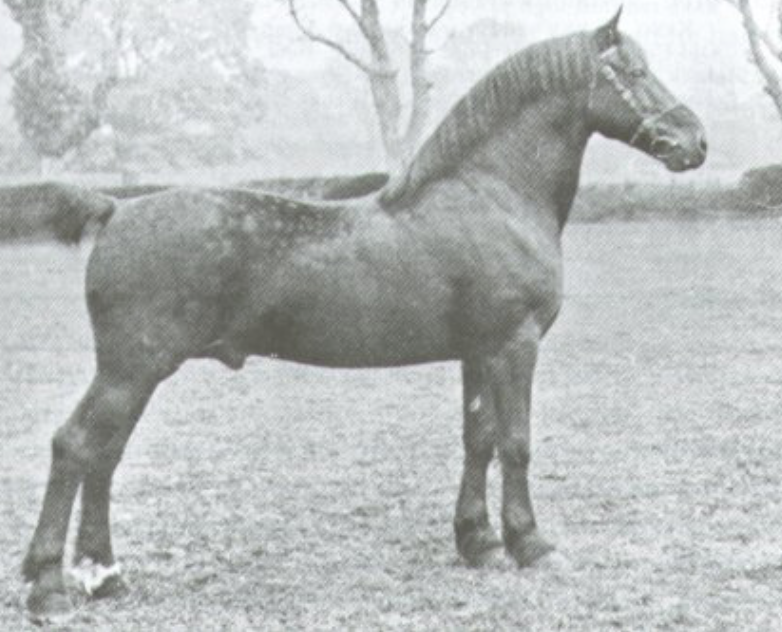Last night I read and enjoyed Wynne Davies’ The Welsh Cob, described in Amazon reviews as “for cob enthusiasts only”. (I feel seen.) While there have been horses in Wales since pre-Roman times, the purebred cob, an absolute unit, is a surprisingly late invention. The first Welsh stud book was published in 1902, following a busy late 19th century of outcrossing native Welsh ponies with Thoroughbreds, Arabs, Hackneys, Norfolk Roadsters, and Yorkshire Coach Horses.

King Flyer, b1894
At almost exactly the same time, my old friend Lady Anne Blunt was importing Arabian horses to England. The modern Arabian and the Welsh Cob were modeled on the English Thoroughbred, itself a literary fiction. Horses, obviously, exist, but purebred horses exist only in books, beginning with the General Stud Book of 1793. The GSB represents a cartel of Thoroughbred breeders and owners. Only horses registered in the GSB can race on the flat in Britain. A closed stud book raises prices by creating artificial scarcity. (Because of the risk of fraud, Thoroughbreds can only be registered if they are conceived by “live cover”, rather than artificial insemination, a quirk of history that keeps a lot of Thoroughbred stallions very busy.)
The GSB is almost exactly contemporaneous with the United States of America, and both of them pre-date Burke’s Peerage, the stud book for British humans. Nations are also literary fictions. Different rules apply to those whose names are written down in the right books. The white colonists needed a reason to argue that while they deserved liberty from oppression, their slaves did not. They found it in the invention of race. White people, like Thoroughbred horses, counted. They were counted. Black people, like half-bred horses, counted for less. Purebred horses were invented in part as a way to make this appear to be a law of nature: but it isn’t.
